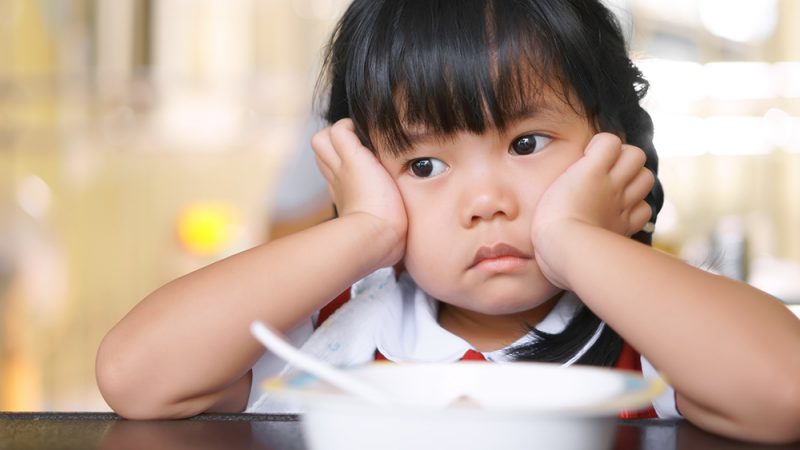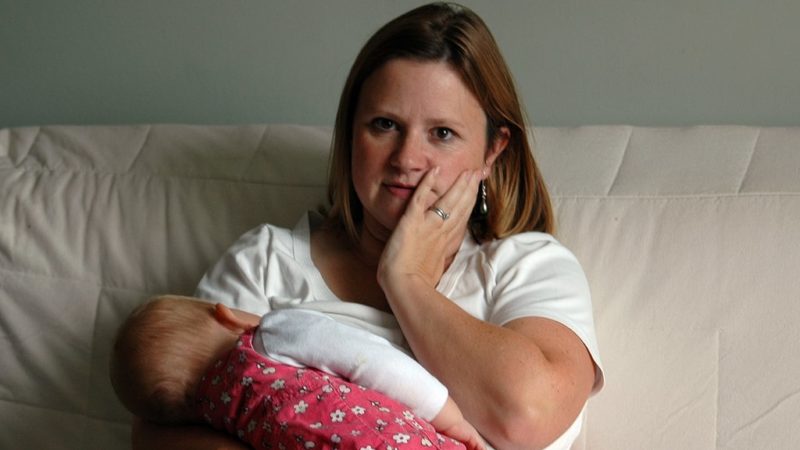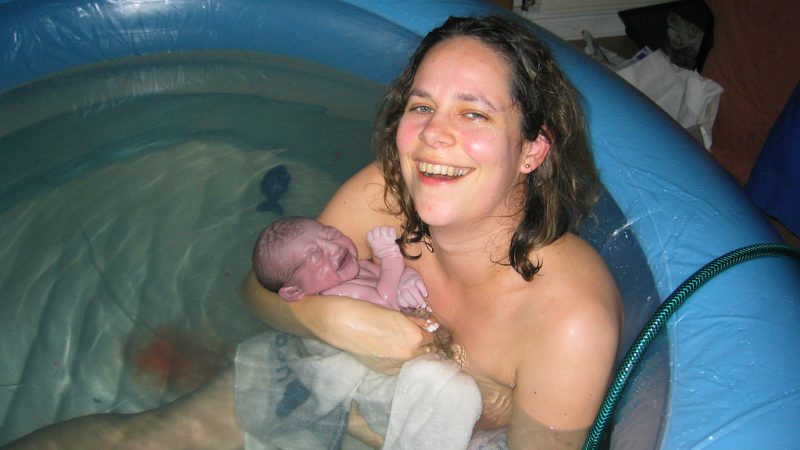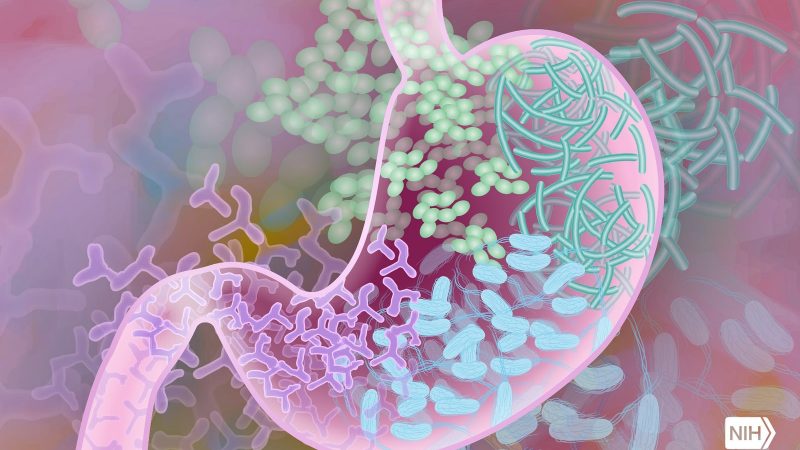
Fussy eating Q&A with Claire Farrow
Claire Farrow is Director of the Applied Health Research Group at Aston University. She is interested in the factors that influence eating behaviour and weight gain or loss in children, and one major factor is fussy eating.
She joined us to answer our questions on fussy eating and her research.
Claire: Hi I’m Claire Farrow. I am a Senior Lecturer in Psychology at Aston University where I conduct research about the factors that influence eating behaviour and weight gain or weight loss in children.
Q: Thanks Claire for joining us. Could you tell us a little about the highlights for you of your research?
Claire: Most of my research is focussed on exploring the factors that affect eating behaviour and weight in children. I have conducted a lot of research exploring the impact of different “feeding practices” to try to explore further how we can help families who are struggling with feeding issues. Recently we have developed resources to help support families with feeding issues and that has been really exciting!
We have developed something called the Child Feeding Guide which is a website which has resources to help parents who are worried about feeding problems. There is also an associated app that parents can download.
Rewards
Q: Most of us have had a chance to read a bit about your research. We read about the three Rs – repetition, role modelling and rewards. But some of us were a bit uncomfortable about the rewards bit. Could you tell us more about what your research tells us about the role of rewards?”
Claire: Yes, rewards are a really interesting area as most of the research that has been conducted suggests that rewarding children for eating a food with another food is a not a good thing. This is because it tends to increase children’s desire for the reward food and lower their desire for the food that you want them to eat. However newer research suggests that if you use non-food rewards (e.g. praise, stickers) for tasting a new food than this can be very effective with children at getting them to try a new food. The most important thing is not to pressure or force children to eat a new food as this will usually always backfire.
Lucy Cooke wrote an excellent piece on the impact of rewards.
PSG B: Ah – so the rewards aspect might be most appropriate for trying new foods rather than more general situations? That makes more sense.
Claire: Yes that’s right, rewards can be effective at getting children to taste novel foods if they really will not taste them.
PSG A: So am I right in thinking it’s important to encourage and reward trying, rather than forcing a child to eat something or rewarding them for eating it?
Claire: Yes, that’s right, the reason for this is that when children are going through very fussy stages (neophobia) they will usually refuse to taste new foods. Most research shows that children need to taste new foods lots of times before they will like and want them so small rewards (stickers praise) can help to motivate that trying and make it into a fun game rather than the dreaded mealtime.
I should add that forcing a child to eat a food is NEVER a good idea. It might work in that moment but you are setting the child up for a lifetime of hating the food you want them to eat.
Q: Should incentives be kept for new foods only because the desire for a reward might over shadow their realisation that they’re full, which obviously isn’t good?
Claire: Yes, rewards shouldn’t be used for cleaning your plate. You are very right, getting children to eat more than they want is over-riding their own internal signals of fullness which is teaching them to overeat and not a lesson that we want to teach
Also I should add that there is evidence that if a child already likes something and you reward them for doing it that it them lessens their internal motivation to do that thing again… i.e. if a child likes a food there is no need to reward
Q: What age can you expect a child to like a sticker as a reward, my lo is 18 months and not interested in them yet. But I am interested in that aspect of rewarding good food behaviours.
Claire: Yes, it is very age dependent but it doesn’t have to be a sticker, a child of 18 months might find praise really rewarding (e.g. “what a great taster!”). 18mo is often the period when fussy eating begins so I know that this can be a difficult time as we tend to see the onset of neophobia around then.
Factors affecting eating behaviour
Q: If it’s not too big a question, what have you found are the factors that affect eating behaviour? And how much is down to the individual child, and how much is down to what parents do?
Claire: Wow that is a big question – I think the important thing to remember is that feeding problems aren’t anyone’s fault. Most children will go through a phase of fussy eating in early childhood. Indeed this is a very natural response known as neophobia (literally fear of new foods). It is how we respond to this normal period of fussiness that can effect whether it is a transient stage or one that becomes embedded. And of course children all have their own unique temperaments have a big impact on feeding and eating too. In most families issues with food get bound up into all of this interacting together. Social influences play a huge role as well.
Maintaining a healthy relationship with food
Q: I’m interested to know how to maintain a healthy relationship with food with a child who doesn’t show any fussiness but is from a family most of whom are overweight.
Claire: It is great that the child does not appear to be fussy – sometimes you can have the opposite and you may have a very “responsive to food child” who enjoys eating. The main things that spring to mind are
a) watch portion sizes, if you offer sizes that are too big children past the age of 5 are quite likely to eat more than they need to;
b) avoid using food as a comfort or a tool (this can set the child up to emotionally overeat in later life); try to model healthy eating behaviour and have healthy foods around rather than unhealthy ones (as these are what the child will be eating)
The other thing is to try to not use food as a tool or a reward, and to try to teach the child to listen to signals of hunger and fullness. So sometimes children think they are hungry when they are bored etc. it can be difficult to learn to recognise and respond to these cues but helping them to learn these is really important (and trusting them when they say they are full!)
Fussy eating in toddlers
Q: Why does fussiness begin around 18mo? My little boy is 16m and I have noticed fussiness starting. He’s my first child so it has taken me a bit by surprise!
Claire: Around this time children start to go through a stage called neophobia (literally means fear of new foods). So, whilst you might find that an infant will happily try new foods this often isn’t the case in toddler years. Research suggests that it can take up to 20 exposures/ tastes of a new food for children to develop a liking for then. This is particularly the case for more bitter foods (many vegetables are bitter). Some people believe that neophobia is an evolutionary response that humans developed to help protect young children from consuming new and potentially dangerous foods. Unfortunately, it means that many children go through a very fussy period with food from around 18months which can continue until around 3-4 years.
Q: What frustrates me with my child, she eats everything at nursery no problem (including inedible stuff!) but not at home. I think she’s just playing me!
Claire: This is very common, do not underestimate the power of peer influence.
Q: My daughter used to be great with foods, she’d eat anything. But now old favourites she won’t touch. As soon as we offer it she shakes her head and says no, so we just put it on the plate, often she will then purposefully drop it on the floor 🙁
Claire: How old is she?
PSG I: she’s nearly 19 months and classed as a high needs baby. She is very stubborn and if she doesn’t want to do something, or in this case eat something she won’t. It’s at the point where she chucks the food off the plate, then we’re trying to find something she’ll eat so she’s not hungry.
Claire: That’s challenging, it might be worth trying to do some games with foods to expose her to foods in a fun way. I would also think about trying to introduce new things gradually, perhaps outside of meals. I assume that she is hungry (not past hunger)?
Extreme fussy eating
Q: How does the advice differ for kids who are abnormally fussy or selective eaters? My toddler became extremely selective in terms of what she would eat and at one point was down to four different foods. Over the course of a year, I managed to improve the variety by modelling eating a variety of foods and always having “safe foods” on the table. Any suggestion to try something leads to total food refusal. Any advice?
Claire: That is very selective eating and must be really challenging. It might be an idea to try some messy play with foods to help to try to desensitise the child to new foods. No pressure to taste them at all- I would avoid this with a very neophobic child and instead focus on trying to make food fun. So for example taking some crisps and getting them to crack them and listen to the sound.
PSG J: She’s also really weird about touching a lot of stuff or getting messy. We saw a dietician because she has CMPA who advised that being nervous of food is normal if she’s learnt it hurts. She literally ate anything until about 13/14 months though
Claire: If she is fussy about touching things (sand, dirt??) then she may be a child who has what we call sensory sensitivity. Many children who are very fussy eaters are hyper sensitive. Responding to feeding difficulties can be a real challenge and it is probably best to try some desensitisation / messy play if they will try it.
PSG J: It is getting a lot better but do you think I should be pushing for a referral specifically for that? I thought it seemed pretty extreme but various health professionals haven’t seemed that concerned.
Claire: I would speak to your health visitor and try to not get too anxious about it. The key thing is whether they are a healthy weight or losing weight. If they are managing to keep a good weight on a restricted diet then they are probably OK but you will obviously want to try to broaden out the number of foods from 4 where you can as time passes. Look at the Child Feeding Guide website for some more tips on introducing new foods.
Trying new foods
Q: Can you tell us more about this research that shows children need to taste food lots of times before they like it? What do you actually do?
Claire: Yes, so there is evidence that children need to exposed to a new food lots of times before they will actually develop a liking for it (people disagree on the number of times). My own experience suggests that this is not the case for pudding type food but for new meal vegetables and less sweet foods this can be the case. The challenge of course is getting children to re-taste a food that they don’t want to and this is where rewards can come in.
Q: How do you reward a child for “trying” without making into pressure?
Claire: It’s a fine line, the key is to make the trying fun! In fact I would suggest that you start by taking the trying away from mealtimes and do it at a time when the child is a little hungry but not starving (perhaps snack time). As them if they want to play a new game which is about a new food. Show them the food and talk about it, perhaps ask them to help you prepare it and then say that if they taste it they can have a sticker. They don’t have to swallow it and it only needs to be a tiny amount and they can even spit it out if they want. Lucy Cooke talks about the tiny tastes methods here.
PSG H: Useful, thanks! Any suggested alternatives to stickers? Presumably not money, and definitely not sweets! What is it about stickers?
Claire: Yes, never reward with another food. And money is quite a high reward to give. the reward should be in proportion to what you asking.
PSG H: Thanks, Claire – I will be looking at Tiny Tastes!
Kids’ Foods
Q: Is there a scientific reason for a child’s preference for “kids” foods? Even the pickiest eaters I know will eat fish fingers/waffles etc
Claire: They are often bland foods in colour (most fussy eaters like bland foods), and often high in salt! and often presented as a fun food…
Baby Led Weaning
Q: Is there any research on whether weaning style (i.e. BLW vs purees) affects eating fussiness?
Claire: I think Amy Brown may have looked at this, she recently published a review on BLW
Conducting Research
Q: Which research questions do you think a citizen science group could realistically research?
Claire: you could look in more detail at things like peer influences, impact of grandparents feeding and sibling influences on eating..
Q: If we wanted to research whether we can have an effect on children’s fussy eating, how could we measure a child’s fussiness? Is there an objective method that has been used before?
Yes there are lots of measures of food fussiness. There is the Child Eating Behaviour Questionnaire (Wardle et al) which has a subscale that measures food fussiness.
PSG G: That’s a very difficult thing to measure as a toddler will refuse to eat something because its tuesday and the next day eat it just fine.
Claire: Yes, that is true – but the child eating behaviour questionnaire asks the parent or caregiver about their perceptions of how fussy the child is overall. Not on one specific day. There will of course be individual differences if people’s perception of what fussy is but if you look at a large enough group of people you should have power to detect differences.
Q: Do you have any practical tips about working with families to collect data about their children? Or anything you might do differently that we could learn from?
Claire: Yes, ethics is a really important thing to consider and consent- especially where the children are involved. Making experiments fun and engaging for children where appropriate and going with the flow. I once got smacked in the face with a toy car half way through an experiment (by accident). Be prepared when working with children…
PSG F: Claire ouch! Good advice, thank you 🙂
One last thing…
Claire: I can’t believe how quickly that went. I feel like there is so much more to say for the people who are worried about their fussy eater…
I think one final thing to say is to try to not get anxious at mealtimes (I know how hard this can be) and to keep persevering with offering new foods but in a non-pressuring way- try to make it fun and food fun, and eventually hopefully they will be interested in trying to taste new foods. I think as a society we get very hung up with what children are eating and forget that what we are also wanting them to learn is to enjoy food and have a healthy relationship with their appetite (i.e. know when they are full). If you can help them to remember that then hopefully with time you will be able to help them try new tastes as well.
Good night everyone (fingers crossed all of your babies sleep through).


